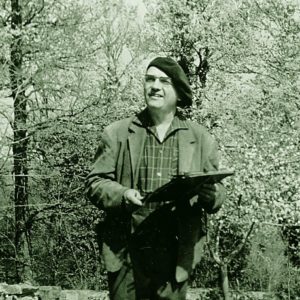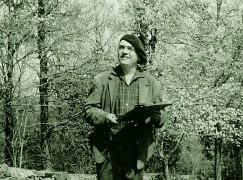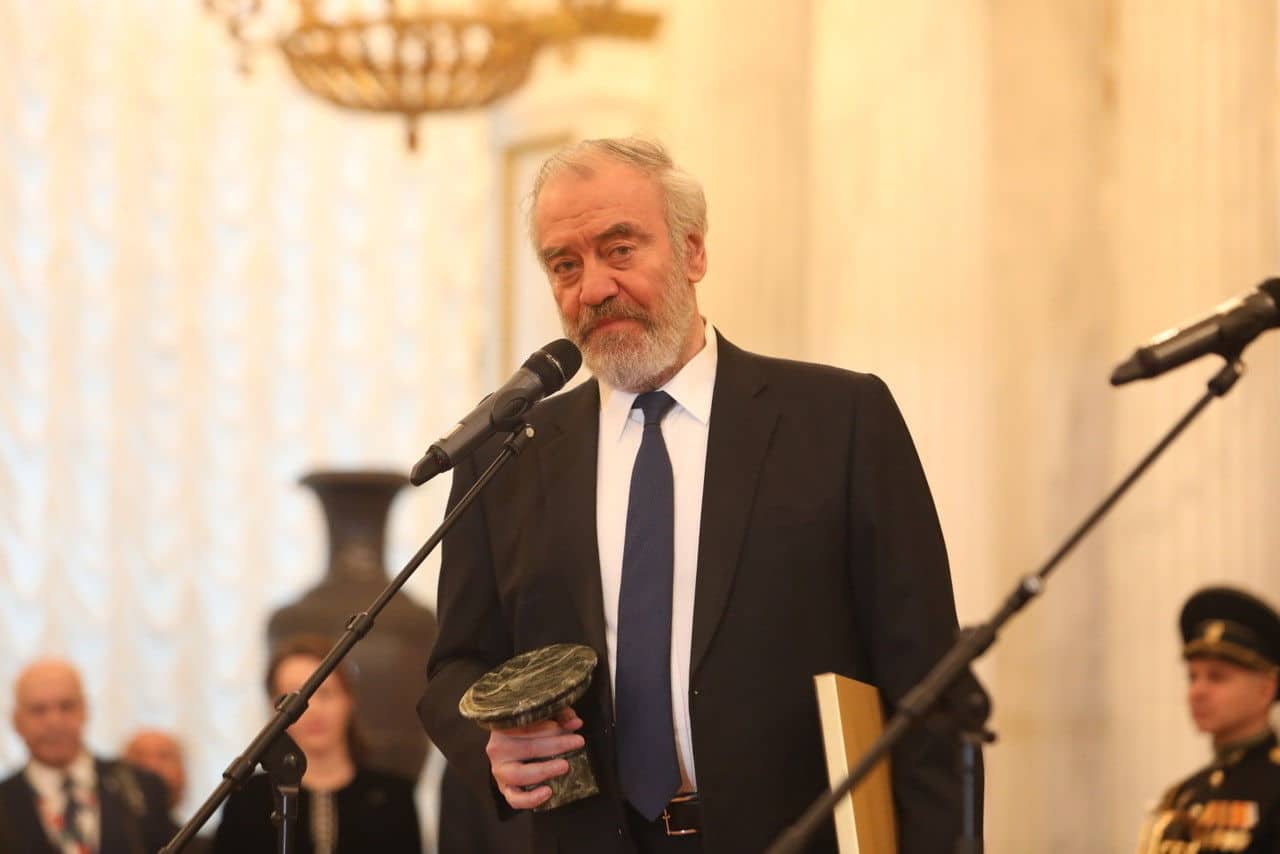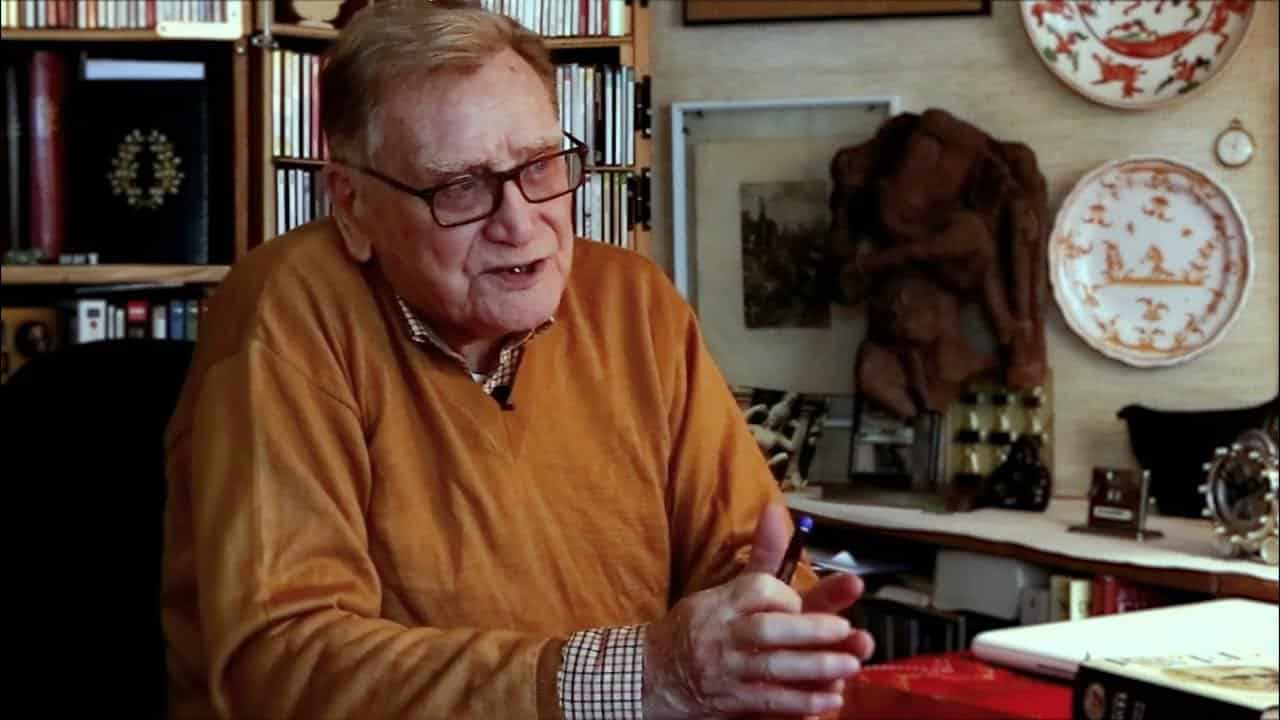Missing Messiaen? He’s the save-the-planet composer
Alastair MacaulayAlastair Macaulay reviews last night’s concert in the Philharmonia’s London series:
Birdsong 2021.x.29
The title of the Philharmonia Orchestra’s autumn season at the Royal Festival Hall, “Human/Nature: Music for a Precious Planet”, contains several ideas. One is ecological: music can evoke matters worth saving from environmental disaster. Another is the view that the tension (and/or harmony) between humans and nature may be the subject of works of art. (Beethoven’s Pastoral Symphony comes later in the series, on December 2.)
A third idea is yet more fundamental: that music can express subjects other than itself. But can it? Stravinsky in his Autobiography claimed, “For I consider that music is, by its very nature, essentially powerless to express anything at all, whether a feeling, an attitude of mind, a psychological mood, a phenomenon of nature, etc … Expression has never been an inherent property of music.”
Even if we disagree with Stravinsky here, it’s valuable to listen to music that expresses or addresses the physical order while expressing primarily music itself. Thursday 28’s concert at the Royal Festival Hall was of twentieth-century French music written in Stravinsky’s lifetime. Although its three works – Ravel’s Miroirs (1904-1904), Messiaen’s Réveil des oiseaux (1953), Ravel’s Daphnis and Chloé Suite no 2 (1909-1912) – were all chosen because of their depictions of the natural world, you could also hear how each was simply an investigation of music for its own sake.
The conductor was Thomas Sondergard, replacing Pablo Heras-Casado; the pianist was Pierre-Laurent Aimard. Ravel’s Miroirs, a work he originally composed for piano alone, has five parts: the third and fourth were given in the orchestral settings he composed, but the other three – which he never orchestrated, though others have done so on his behalf – were played by Aimard in their original piano versions. Whether writing for piano or orchestra, here was Ravel the sonic explorer, boldly charting new acoustic possibilities, combinations, resonances.
In Noctuelles (Moths), the first of the Miroirs, Aimard immediately cast a spell with the semi-melodic clusters of notes, often high and fast, interspersed with descending staccato; and in Oiseaux tristes (Sad birds) he made the insistent repetition of small notes fascinating. Yes, we can hear what’s moth-like about Noctuelles and birdlike about Oiseaux tristes, but those evocative aspects of the music aren’t really what’s most interesting here.
How good to hear Ravel the experimentalist: Aimard plays the piano like a scientist in the laboratory. Much the same was true when Sondergard conducted Une barque sur l’océan and Alborado del gracioso, the third and fourth Miroirs, although Ravel’s brilliant command of orchestral sonorities is far from his way with pianistic sound. When Aimard closed the suite with La Vallée des cloches, the music’s amazing tintinnabulations certainly said what they said about bells, but what was most radical here was the lingering of sustained chords (so that the piano became its own echo-chamber), the repetition of tiny sub-phrases, and the poetic control of diminuendi (fading effects).
Messiaen is a divisive composer even among devotees of advanced musical modernism. The critic Charles Rosen referred to his scores as “Saint Francis Treading on the Birds”; yet I remember a glorious concert of his organ music after which one young American rapturously exclaimed “Gee, to think I spent all that money on drugs when I could have had the same experience with Messiaen.” As a depiction of birdsong, his Réveil, despite a wealth of detail, is only intermittently captivating. As sheer musical form, though, Aimard and Sondergard made it riveting, especially in the passages of greatest rhythmic multiplicity (when individual avian voices merge into polyphony).
The concert concluded with the second suite from Ravel’s Daphnis. Even though many of us know this as an old friend, it abounds in musical miracles whose radiance and meanings come up differently on successive listenings. With the Philharmonia and Sondergard, it became a study in both time and timelessness: Ravel sometimes flooded the senses while apparently stopping the pulse, yet in other sequences made nature itself seem one giant heartbeat.
In perhaps the score’s most sublime paradox, the strings play softly metric pizzicati, while the flute solo’s melodic line pours forth regardless – like birdsong – with no evident metre. We’re made aware of both time and its suspension, of both world and soul.







I think it was Neville Cardus who was dismissed from his reviewing post at The Times for writing a review without having attended the concert itself. This supposed review is an absolute disgrace. The conductor was not Pablo Heras-Casado but Thomas Sondergard. Can one believe anything this reviewer is likely to say in future?
Did you miss the sentence wherein he states that Sondergard replaced Heras-Casado?
You’ve obviously only read the updated version which reflects this. The original post, to which Alexander Hall was responding, referred to Heras-Casado as the conductor throughout.
Have you never heard of skilful post-deed editing when your egregious mistake has been exposed? And how about the real issue here: a succession of programme notes is not a review of actual performances.
The conductor was actually Thomas Sondergard, replacing an ailing Pablo Heras-Casado.
thanks
Music for music’s sake is like taking care of dirt that it’s organic, and thus you are concentrated on allowing it to be an environment for what can come out of it, to allow that, rather than deciding before hand (see Monsanto corporation). But that doesn’t mean that music doesn’t have everything Stravinsky said it didn’t: “For I consider that music is, by its very nature, essentially powerless to express anything at all, whether a feeling, an attitude of mind, a psychological mood, a phenomenon of nature, etc … Expression has never been an inherent property of music.”
That’s like saying that dreams don’t mean anything, that there’s no reason to have a subconscious, that anything you do reflexively doesn’t mean anything because you have to do it consciously, and that we aren’t expressing our history, and the momentum of our lives, and that of our society with our responses to life. That stuff HAPPENS, but when you allow it in a healthy way, it actually gives perspective (on your own history, that of society, that of the human condition etc.), and becomes healing to a person and a society.
Having said all of that, when someone starts going on that they know what fill-in-the-blank expresses, it really can be quite a bit of bull-sh@#$@)(* and one can go back to what Stravinsky said, and actually tend to music instead. And the art of bringing it into being.
But personally, I’m quite amazed at how music gives a space for perspective, and healing and even things the mind couldn’t have allowed, possibly “miracles,” but that’s personal; and that stuff emerges in the process of simply nurturing music, because it’s music. Not even because it’s a prestation of having expressed something, or created an effective impressive piece of art. There’s a lot of “work” to it, but that’s because it isn’t otherwise music. It doesn’t move effortlessly like the stuff that comes out of nowhere, constantly blessing us, when we think we know better….. Otherwise, I can’t let go of it, like a child that needs listening to, or a garden that needs tending, or a thought that’s vibrating needing attention, and I mean a though, I don’t mean “ambition,” and effect….
Sorry I missed a “t” also quite a few funny commas, but..
last sentence should read: “Otherwise, I can’t let go of it, like a child that needs listening to, or a garden that needs tending, or a thought that’s vibrating needing attention, and I mean a thought, I don’t mean “ambition,” and effect….”
And potential for thought, which is the very nature of music, and what state it puts the mind in allows for: potential. Something that is different for every person that hears a piece of music, and yet there can be an uncanny agreement in how people hear the same emotions, when according to modern “science” it’s just vibrations in the air and couldn’t carry everything Stravinsky denies is there.
No it ISN’T just vibrations in the air. But if one would go back to that, I also find it quite depictive how Jazz musical theory, which came from uneducated black slaves, or impoverished oppressed people, how it’s relationship WITH those vibrations, the tree of resonance which creates a key signature, and the mathematical science of how the chords relate and resonate with each other, that it’s a step closer to scientific accuracy than Western “civilized” harmony, if one is to speak of science.
With the raised fourth, and how there’s not a piece in a major key that doesn’t have that raised fourth in the secondary dominant, although it’s not part of the key, but needs to be there to create the architecture of vibrations that build the resonance grounded into that key……
And I’m not going to get into that discussion, with the “learned” ones and their ridiculing and sarcasm, acting like anyone with simple un-indoctrinated insight is crazy….
Music is a space that allows for potential of thought, for healing. What’s truly sad is to see the amount of tragedy in the lives of the composers whose music is exploited, used, and how it’s once again taken apart and dissected, as if taking a fish out of the water and killing it is how you understand what it is. And the very stuff that it’s made of, what those composers struggled to give life to, is AGAIN pushed to the side… the understanding of what a tragic turn their lives took made out to be anything but that what music really is wasn’t allowed….
Regarding what I’m not going to get into a discussion about, whether Jazz theory is more scientific regarding the overtone series, and “tonality.” Anyone can do the math themselves, of how the overtones of notes relate to each other, or how the tree of harmony that’s the architecture is built. But for example in c major, the f-sharp of the secondary dominant (an overtone series resonating with the D of the dominant, the dominant coming from the G of the tonic) mathematically is more resonant with the key than the F natural, because the F natural would bring the whole architecture of resonance to a structure built on F NOT on C. And this isn’t even at all off topic, because such resonance allows for indigenous melodies to find harmonies that actually work with them, rather than the exploitation of color when the resonance is less grounded, very equivalent to the consumerism that has destroyed indigenous cultures. And what’s happening to the mother earth.
End of discussion.
There’s quite a difference between the Messiaen of before WW II and after. His organ works from the interbellum are, most of them, pieces of spiritual genius; after the war, when he had to recover from trauma (he had been taken prisoner by the Germans), and when his mental and physical health were severely damaged, he took-up ornithology as a way of escaping reality. And thereafter, he sprinkled birdsong all over his scores, as the ‘voice of nature’, unaffected by humans. Therefore all his bird song components are literal transcriptions of what the innocent birds were ‘singing’, the material was not ‘translated’ into music. Therefore those works are often very silly and irritating. Nature is not only what happens there separated from humans, but also how it is experienced by the human mind and heart, because we are partly part of nature.
“..because we are partly part of nature.” Your last sentence.
We ARE part of nature. The fact that we maltreat nature every day with poor environmental practises shows that too many people and governments share your attitude about our being
not FULLY part of nature. We all of us, plants and animals came out of the Primordial Ooze, which proves the point.
We may, yet, crawl back into another kind of ooze if we don’t do something about our carelessness and self-centeredness.
I wish I could have been at the concert cited in the review. It sounds as if it would have been immensely fulfilling, musically.
With ‘partly’ is meant: our rational mind has the capacity to stand back from nature and reflect on it as if from the outside. Hence the exploitative treatment of nature, and of human nature.
But in the end, also our rational mind is a product of nature. Only, where it goes against nature itself, it creates serious problems. The debate about nature will not end very soon.
Barf. Kum ba ya etc.
This is why Beethoven, Brahms, Mozart, and Tchaikovsky will continue to dominate concerts: the woke agenda males crap music and sycophants disguised as reviewers.
Whence these anaspeptic phrasmoticalities? The wokes are self-defeating anyway.
A fresh walking route took me by a cornucopia of dazzling hummingbirds ecstatic from drinking nectar from feeders hung from some generous person’s second-story apartment windows. Kaleidoscopic, frenzied counterpoint is one way to describe their interwoven tapestries of flight.
http://azuremilesrecords.com/hummingbird_canyon.html
It was a fantastic concert. Sondergard obviously knows pretty much every note of Daphnis, and got a great performance out of the Philharmonia. Aimard was masterful in the Messiaen, as you’d expect.
“I remember a glorious concert of his organ music after which one young American rapturously exclaimed “Gee, to think I spent all that money on drugs when I could have had the same experience with Messiaen.””
I understand the sentiment, but surely this story has to be apocryphal.
Messiaen himself saw colours when he heard sounds, so a deregulating influence on people’s neuroperceptae is not entirely out of the question.